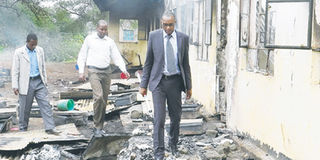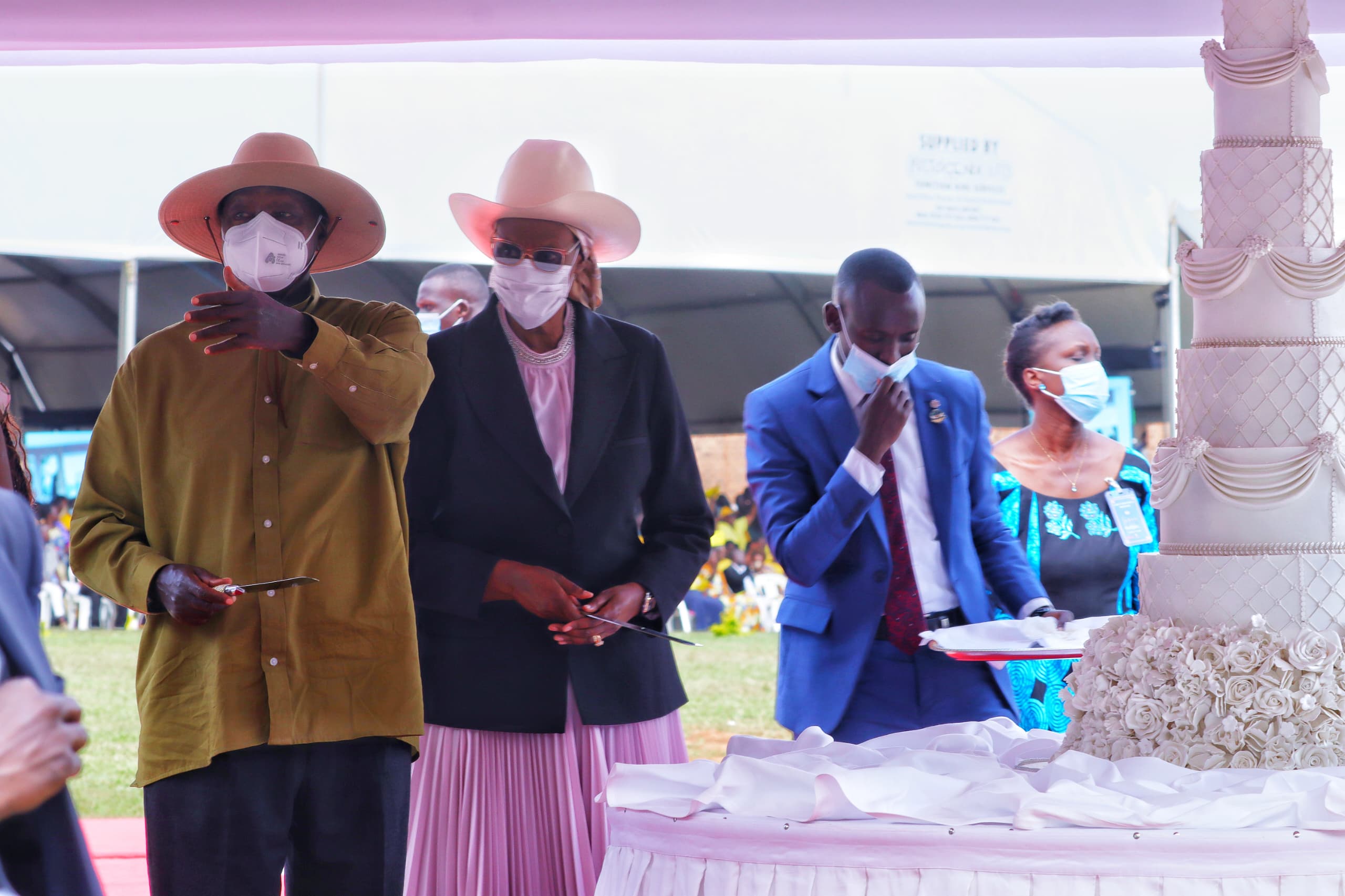Fires: Sorry state of schools' readiness

What you need to know:
The midnight inferno that left seven pupils with serious wounds and more than 50 others escaping with minor injuries, was the fourth school fire in less than three months.
The eve of Monday, September 14, 2020, will remain in the memories of parents who lost their children in a fire that consumed a dormitory with 74 learners at Byamungu Islamic Primary School in Kyerwa District, Kagera Region. Ten pupils lost their lives in the tragic incident.
The midnight inferno that left seven pupils with serious wounds and more than 50 others escaping with minor injuries, was the fourth school fire in less than three months.
The first incident occurred on July 5, 2020, when Dar es Salaam’s Ilala Islamic School’s dormitory was razed down by fire, causing three deaths. On July 17, 2020, a similar accident took place at Kinondoni Muslim Secondary School also in Dar es Salaam.
On August 31, 2020, another fire accident occurred at Mivumoni Islamic Secondary School, in Kinondoni District, Dar es Salaam.
Another recent school inferno which happened on September 27, involved a Tabora-based school, Istiqaama, which is owned by the Musilim Community. No deaths were reported but students’ and school’s property were all burnt to ashes.
On September 28, Yustus Seconday School in Mwanza Region saw its dormitory burn to the ground. The cause of the fire is attributed to an electric mishap which happened at around 8:00am of the fateful day.
No deaths were reported, but all property of the 22 students who study at the school was lost to the fire. All these unprecedented tales have since set tongues wagging, with no one to respond on what could be causing these series of heartbreaks.
Success conducted a random survey in some Dar es Salaam boarding schools to find out how safe students are in schools.
At the first school visited this reporter witnessed several issues regarding students’ safety.
There wasn’t a single fire extinguisher at the school, according to the security man interviewed. He disclosed that the school did not have trained individuals to deal with fire outbreaks.
“…We don’t have fire extinguisher cylinders… even if they were available our students do not know how to use them, no training has been conducted here,” he told Success.
A teacher at one of the surveyed schools who preferred anonymity says that due to overcrowding in some dormitories, it would be difficult to offer help in the event of a fire outbreak.
“Fire is an accident that we must always be cautious about and school owners must spend money to ensure the safety of students in schools is guaranteed,” he said.
Mr Johnson*, a teacher from another prominent school expressed his fears if such an accident happened.
“Let’s pray to God that it doesn’t happen here. There are no fire extinguishers or fire detection and alarm systems. Student overcrowding is another big challenge. The security of our students is indeed not guaranteed,” he warned.
The teacher explained that although the school does not have fire extinguisher cylinders, there also are no trained personnel to deal with fire accidents.
“A school is a hub that accommodates a huge number of people, including the vulnerable. When registering a school, all these factors should be considered. I doubt if the owners ever think about such emergencies prior to enrolling students,” he lamented.
Although some school owners might be ignoring this important requirement, the Tanzania Fire and Rescue Force Act, 2007 and fire precaution in buildings regulations, require fire detection and alarm systems and automatic fire sprinklers to be installed in buildings. The act also requires that exit doors should be those that can be opened without using a key and that they should be opened in the direction of exit travel.
Success found out that these requirements are to a large percentage not being implemented in schools as is required by the law.
Chief Fire and Rescue Spokesperson, Joseph Mwasabeja says that school buildings, as is the case with any other buildings should meet the required criteria.
He says boarding schools are supposed to have fire detectors installed in the dormitories and that a school should not enrol students if it doesn’t meet this criterion.
Regarding many schools’ failure to meet this criterion, the fire brigade spokesperson says, “I cannot agree or deny that many schools don’t meet the fire prevention criteria but we do conduct inspections… We conduct inspections regularly even in upcountry.”
Tanzania Association of Managers and Owners of Non-Government Schools and Colleges (Tamongsco) Chairman, Leonard Mao says for a school to be registered, an engineer must certify that the building infrastructure has been completed following the appropriate procedures.
Also a health officer must verify the safety of students and the environment of the institution as a whole, while a field (land) officer must ensure that the area is big enough for the school to operate.
He says the education commissioner in the area approves the registration of a school and that fire extinguishers are supposed to be one of the priorities.
“The fire brigade is required to inspect schools and ensure that the necessary equipment such as fire extinguishers are in place. So why is all this mess happening in schools if all the procedures are being followed?” Mao questions.
A 2017 study by Emmanuel Nestory of Muhimbili University of Health and Allied Sciences on fire disaster preparedness in secondary schools reveals that there is inadequate knowledge on fire safety preparedness among secondary school teachers.
The study further discloses that most of the schools have un-serviced firefighting equipment, lack of persons responsible for fire outbreaks, absence of fire safety inspection in schools and non-existence of fire emergency plans in secondary schools...
“…regular training on fire safety, provision of funds in schools to ensure provision of fire-fighting equipment and regular inspection for fire safety should be guaranteed,” reads part of the study.
According to Fire, Electrical & Safety Compliance Services (FCF)’s Fire Extinguisher Training in Schools, 2019 report, having good fire extinguisher training in schools is much more critical to avoid panic and injury.
“Fire safety usually means having enough emergency procedures like fire extinguisher training and conducting regular fire drills to ensure that in the event of a fire, everybody understands what they should do,” part of the FCF report reads.
The report highlights the need to execute the appropriate risk assessments and taking sensible measures to mitigate preventable fire hazards.
Even though President John Magufuli has since directed relevant authorities to conduct thorough inspection of all schools with boarding facilities to establish if they observed safety standards during their construction, a call has been made to ensure inspection go es beyond just checking mere faults.
The president ordered stern legal measures to be instituted against those operating without valid permits.
Tamongsco’s Mao says the fires that happen to be occurring in the election period reminds him of the infernos that engulfed schools toward the first multiparty election in 1995.
He says there was a series of school fires from 1994 up to 1995.
Mao is of the view that the investigations should not stop at just looking at the schools’ infrastructures but should go further to find out what is behind the mishaps.
“This is an election year. Investigations should look behind the cartel as these kinds of tragedies happened in the run-up to the 1995 General Elections where at least 29 schools, including Shauritanga were razed down by fire. That year it was discovered that there was more than just technical fault or infrastructure challenges.”
Mao claims that whenever there is a fire disaster, much of the time is lost investigating technical faults. He opines that a thorough investigation is paramount to saving children against people with bad intentions.
“Students and all other possible sources should be interrogated. We should not just end up on the surface but go deeper into this issue, because it is not normal. We must save our country’s future.”
*Names have been changed.
Email: [email protected].



